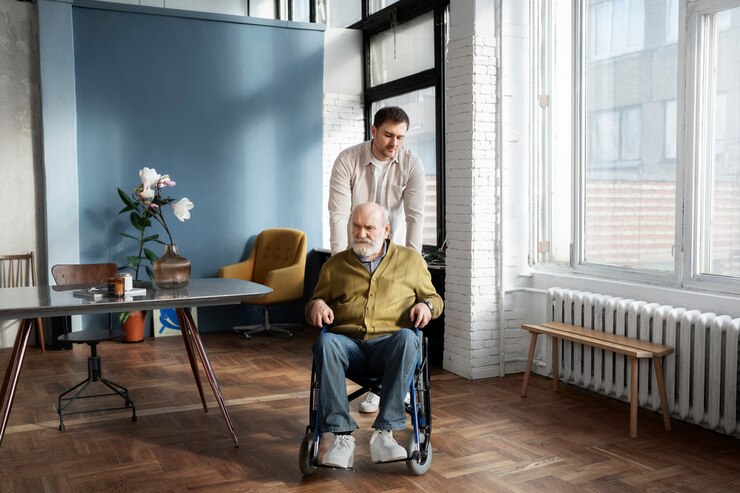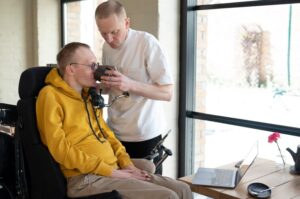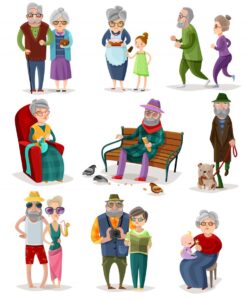
Our communities are made up of a diverse range of individuals, each with unique needs and experiences. However, some groups within society face greater challenges in accessing essential healthcare and maintaining their well-being. These are the vulnerable groups – individuals who, due to age, disability, illness, or other factors, require additional support.
Who are the Vulnerable Groups?
Several key groups fall under the umbrella of “vulnerable”. They include:
1. People living with disabilities

This encompasses a broad spectrum of people with physical, sensory, intellectual, or mental impairments. Their needs vary greatly, but may include assistance with daily living activities ((bathing, dressing, etc.),), accessible transportation, and specialized healthcare.
2. The elderly

As we age, our physical and cognitive abilities can decline, making us more susceptible to health issues, social isolation and feelings of vulnerability.
3. Children

Young people are especially vulnerable due to their dependence on adults for basic needs and healthcare. Children from disadvantaged backgrounds or those with physical/mental health issues may face even greater challenges.
4. People with chronic illnesses

These individuals manage long-term conditions like diabetes, heart disease, or cancer. They often require ongoing medical care, medication management, emotional support and potentially, financial assistance.
Understanding the needs of Vulnerable groups
Each vulnerable group faces unique challenges. Here are some of them:
People with disabilities: Accessibility barriers can prevent them from accessing Communication difficulties due to physical or sensory limitations can further restrict their ability to express their needs and advocate for themselves.
The elderly: They may require assistance with activities of daily living like bathing, dressing, and medication management. Social isolation is a significant concern, impacting their well-being.
Children: Children from disadvantaged backgrounds or those with physical/mental health issues may lack access to proper healthcare, education, and a safe and nurturing environment. These factors can significantly impact their development and future prospects.
People with chronic illnesses: Managing a chronic condition can be physically and emotionally draining. Financial burdens due to medical costs can add significant stress. Additionally, they may experience social isolation and feelings of stigma related to their illness.
How Can We Support Them?
Fortunately, we can create a more inclusive and supportive environment for vulnerable groups. Here are some ways to make a difference:
1. By promoting accessibility
Public spaces, transportation systems, and buildings should be deliberately designed for accessibility, catering to the needs of people with disabilities.
2. By strengthening social support networks
Community programs and volunteer initiatives can combat social isolation amongst the elderly and people with disabilities. These initiatives can offer companionship, organize social events, and provide practical assistance with daily tasks.
3. By investing in child health and well-being
Accessible and affordable healthcare, quality education, and safe environments are crucial for children’s well-being. Investing in these areas not only improves their lives but also contributes to a stronger future society.
4. By providing ongoing care
People with chronic illnesses need access to specialist care, medication, and financial assistance if needed. Support groups can offer a sense of community and shared understanding.
Matz Care Services: Supporting Vulnerable Individuals in the UK

At Matz Care Services, a UK-based healthcare company, we demonstrate a strong commitment to supporting vulnerable groups. Our approach focuses on empowering individuals to live fulfilling lives with dignity and independence.
Here’s how we make a difference:
- Tailored care plans: Matz Care recognizes the unique needs of each individual. We create personalized care plans for people with disabilities, the elderly, and those with chronic illnesses. These plans address daily living activities, medication management, transportation to appointments, and social support.
- Skilled and compassionate staff: Our team comprises qualified healthcare professionals and caregivers dedicated to providing high-quality, compassionate care. This means not just meeting physical needs but also fostering emotional well-being and respecting individual preferences.
- Promoting independence: Matz Care prioritizes enabling individuals to maintain as much independence as possible. We work with clients to develop skills and strategies for managing daily tasks, fostering a sense of dignity and control over their lives.
Supporting families: We understand the importance of family involvement. We offer support to families caring for vulnerable loved ones, providing respite care, training, and emotional support.
Conclusion
Building inclusive communities, promoting accessibility, and providing tailored support are essential for empowering vulnerable groups. Companies like Matz Care Services play a vital role in ensuring everyone receives the care they need to live fulfilling lives.

Pingback: Mental Health Care for Vulnerable People in the UK: Challenges and Solutions - MATZ Care Services
Pingback: How to Care for People with Substance Abuse Issues - MATZ Care Services